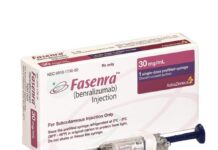SOUTH SAN FRANCISCO, Calif.– InterVenn Biosciences, the life science company pioneering glycoproteomics, presented new data at the 2023 Digestive Disease Week (DDW) annual conference, which was honored as a “Poster of Distinction”. This data, generated by InterVenn’s novel, proprietary biomarker discovery platform, GlycoVision™, analyzed 575 retrospective samples and was able to achieve an overall sensitivity of 89% and specificity of 89% for predicting advanced adenoma (AA) and colorectal cancer (CRC). Separately, AA (N=32) was predicted with 87.5% sensitivity and CRC with 89.4% sensitivity. The sensitivity results of 87.5% for AA prediction is the highest that has been reported to date in the industry.
“The data presented yesterday validates that we are on the right track toward defining a new era of pre-cancer detection for patients at risk of developing colon cancer,” noted Erwin Estigarribia, InterVenn’s CEO. “Our unique glycoproteomic technology has achieved the industry’s highest level of sensitivity and specificity rates for AA and CRC seen to date using liquid biopsy and we expect to have a clinically validated test available to patients on the market later this year.”
“We’ve known that aberrant glycosylation events in colonic crypts and systemic circulation occur throughout the adenoma to carcinoma sequence. To put simply, we’ve known for some time of the possibility to detect AA at the pre-cancer stage,” said Daniel Hommes, MD, PhD, gastroenterologist, and Chief Medical Officer at InterVenn. “Other non-invasive tests, which primarily analyze circulating tumor cells, have not been able to achieve this level of sensitivity at the AA stage for the fundamental reason that precancerous lesions do not shed tumor DNA. The ability of our platform to measure glycosylation of circulating plasma proteins, detecting precancerous advanced adenomas and early CRC with high sensitivity from very small amounts of peripheral blood (as little as 50 µl of serum or plasma) is a differentiating feature of our technology. We are now thrilled to have data that validates the GlycoVision™ capabilities in a clinically meaningful way.”
GlycoVision allows high resolution and high throughput glycoproteomic profiling by combining liquid chromatography and mass spectrometry (LC-MS) with AI-powered data processing. The platform’s method of assessing circulating serum glycoproteins is unlike any non-invasive test for CRC that’s on the market, which primarily analyze circulating tumor DNA (ctDNA), circulating tumor cells (CTC), or cell-free DNA (CfDNA). While some of these tests can meaningfully detect CRC, their ability to detect AA, when available treatments have a higher rate of success, have remained elusive. GlycoVision can offer a robust pipeline of powerful and broad clinical applications, ranging from early disease screening to diagnostics and even therapeutics, from as little as 50 µl of serum or plasma.






